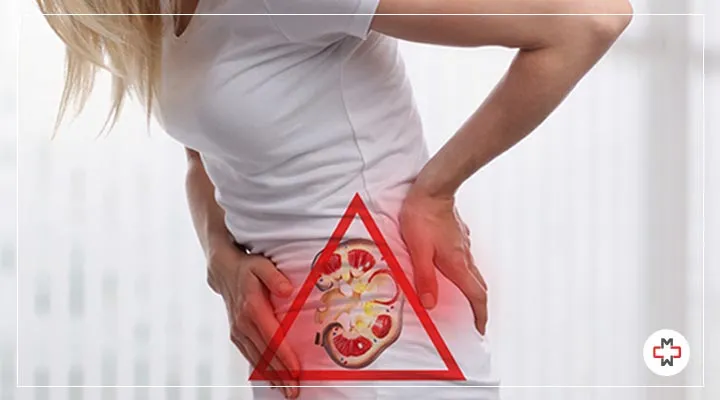Comprehending the Differences In Between Kidney Stones vs UTI: Key Symptoms and Treatments
Comprehending the Differences In Between Kidney Stones vs UTI: Key Symptoms and Treatments
Blog Article
Exploring the Effects and Causes of Kidney Stones in Contrast to Urinary System Infections: A Detailed Overview
The exploration of kidney stones and urinary tract infections (UTIs) reveals a complex interplay of signs and underlying causes that require cautious exam. What are the vital distinctions in their signs and symptoms, and just how might these notify treatment techniques?
Summary of Kidney Stones
Kidney stones, also referred to as renal calculi, form when particular materials in the pee crystallize and accumulation, bring about the growth of tough down payments within the kidneys. These stones can vary in size, varying from a grain of sand to a golf round, and can be made up of different materials, the most usual being calcium oxalate, uric acid, struvite, and cystine. The development of kidney rocks is influenced by several factors, consisting of nutritional routines, fluid intake, and hereditary tendency.
Symptoms of kidney rocks might include severe discomfort in the back or side, blood in the pee, queasiness, and frequent peeing, especially as the stone relocates with the urinary system. Medical diagnosis normally involves imaging studies such as ultrasound or CT scans, along with urinalysis to determine the stone's make-up.
Treatment alternatives vary based on the dimension and kind of rock, in addition to the severity of signs and symptoms (Kidney Stones vs UTI). Little rocks may pass naturally with boosted fluid consumption, while larger rocks may call for medical treatments such as lithotripsy or surgical elimination. Comprehending the pathophysiology and threat elements connected with kidney stones is essential for reliable avoidance and administration
Introduction of Urinary Tract Infections
Urinary system tract infections (UTIs) are common bacterial infections that affect any type of part of the urinary system, consisting of the kidneys, ureters, bladder, and urethra. They primarily take place when bacteria, usually from the intestinal system, enter the urinary system, bring about inflammation and infection. UTIs are categorized right into 2 main kinds: straightforward and complicated. Straightforward UTIs typically occur in healthy people with normal urinary systems, while challenging UTIs may arise in people with hidden conditions, such as architectural irregularities or compromised body immune systems.
The frequency of UTIs is significantly higher in women than men, mainly due to anatomical differences, such as a shorter urethra. Danger elements include sex-related activity, certain contraceptive methods, urinary system retention, and dehydration. The diagnosis of UTIs is normally validated with urine examinations, which might disclose the presence of microorganisms, leukocyte, or red blood cells.

Signs And Symptoms of Kidney Stones
The discomfort related to kidney rocks can show up in different ways, typically leading individuals to look for medical interest. Among the most usual signs is severe pain, usually localized in the reduced back or side, which might radiate to the abdomen or groin. This discomfort, commonly referred to as sharp or cramping, can occur suddenly and might vary in strength.
Furthermore, individuals might experience hematuria, or blood in the urine, which can vary from microscopic quantities to noticeable discoloration. This signs and symptom may be come with by modifications in urinary routines, such as boosted frequency or necessity, as well as pain during peeing. Nausea and throwing up are also widespread, typically arising from the click here for more body's reaction to extreme discomfort.
In many cases, individuals may experience high temperature and cools, particularly if an additional infection creates due to the obstruction created by the stones. In general, the mix of serious discomfort, hematuria, transformed urinary system patterns, and gastrointestinal signs can give significant insight into the existence of kidney rocks, necessitating prompt medical analysis and intervention. Understanding these symptoms is critical for timely diagnosis and reliable administration of the problem.
Signs of Urinary System Tract Infections
Infections within the urinary system system frequently provide a series of unique signs that can dramatically influence every day life. One of the most usual signs and symptoms consist of a relentless impulse to pee, often accompanied by a burning sensation during peeing, recognized as dysuria. People might likewise experience boosted regularity of urination, producing percentages of pee each time.
Various other remarkable signs and symptoms consist of gloomy or reeky pee, which might indicate the existence of bacteria or pus. Sometimes, urine may show up pink or red due to the presence of blood, a problem called hematuria. Furthermore, individuals might experience pelvic pain or pressure, which can further aggravate the sensation of seriousness.
Systemic symptoms might likewise materialize, such as high temperature, cools, and fatigue, especially if the infection has actually ascended to the kidneys. It is necessary to identify these signs early, as neglected urinary system system infections can result in more extreme issues. Kidney Stones vs UTI. Prompt clinical attention is suggested when these signs are observed, permitting proper diagnostic analysis and best site treatment to relieve pain and protect against further wellness problems
Reasons For Each Problem
Regularly, kidney rocks and urinary tract infections develop from distinctive yet sometimes overlapping causes that can impact people in different ways. Dehydration, insufficient fluid intake, and high-sodium diet regimens can aggravate these conditions, promoting condensation within the urinary system system.

Understanding these distinct reasons is critical for avoidance and treatment. Kidney Stones vs UTI. While lifestyle modifications might alleviate the risk of kidney stones, ideal health and timely treatment of urinary system tract infections are important for reducing their reappearance and linked problems
Conclusion
In recap, kidney rocks and urinary system infections present distinctive signs and symptoms and underlying causes. Kidney stones are identified by serious discomfort and metabolic aspects, while urinary system infections mainly involve microbial infections resulting in urinary system seriousness and pain. Both conditions can result in hematuria, their development mechanisms vary significantly. Recognizing these differences is vital for effective medical diagnosis and treatment, inevitably improving individual results for those impacted by either problem.
The exploration of kidney rocks and urinary system system infections (UTIs) reveals an intricate interaction of symptoms and underlying reasons that necessitate careful assessment.Urinary system tract infections (UTIs) are usual bacterial infections that affect any part of the urinary system, consisting of the kidneys, ureters, bladder, and urethra.Regularly, kidney stones and urinary tract infections develop from distinct yet often overlapping reasons that can influence individuals in a different way.In recap, kidney rocks and urinary system tract infections present distinct signs and underlying reasons. Kidney rocks are identified by extreme pain and metabolic factors, while urinary tract infections mainly include microbial more helpful hints infections leading to urinary system necessity and pain.
Report this page